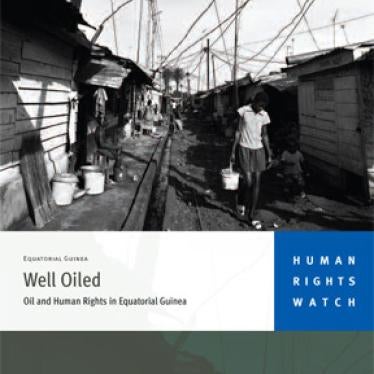(New York) - The 58 countries on the governing executive board of the United Nations Educational, Scientific, and Cultural Organization (UNESCO) should block plans to award a life sciences prize financed by and named for the dictator of Equatorial Guinea, Human Rights Watch said today.
Sources at UNESCO said that a June 15 UNESCO meeting in Paris is the last chance for the board to object to the UNESCO-Obiang Nguema Mbasogo International Prize for Research in the Life Sciences before an award ceremony tentatively scheduled for late June.
"The UNESCO-Obiang Prize is a stain on the reputation of all UNESCO members," said Jon Elliott, Africa advocacy director at Human Rights Watch. "Unless governments speak out to stop this impending travesty, they will share in the responsibility."
A global campaign involving scores of civil society organizations - including groups from Africa, Asia, Eastern Europe, Latin America, and the Middle East - has warned UNESCO's leadership that the controversy over the prize risks causing irreparable harm to the organization's reputation. In addition to human rights groups, critics of the prize include press freedom organizations, scholars, public-health advocates, and scientists from around the world.
Obiang personally addressed the controversy in a video posted on YouTube. In it he said that he dedicated funds to create the UNESCO prize to promote scientific research that helps "preserve human life."
"The UNESCO-Obiang Prize is supposedly dedicated to scientific advances that improve the quality of life for all," Elliott said. "But President Obiang's real aim is to mask his highly corrupt and abusive rule. He would do better to first improve the miserable living conditions of the people of Equatorial Guinea."
Equatorial Guinea's oil wealth and small population give it a per capita GDP approximately equivalent to that of Spain or South Korea, yet socioeconomic indicators reveal that the population suffers conditions worse than those of many war-torn regions. For example, recent research reveals that child mortality statistics in Equatorial Guinea are the worst in the world.







